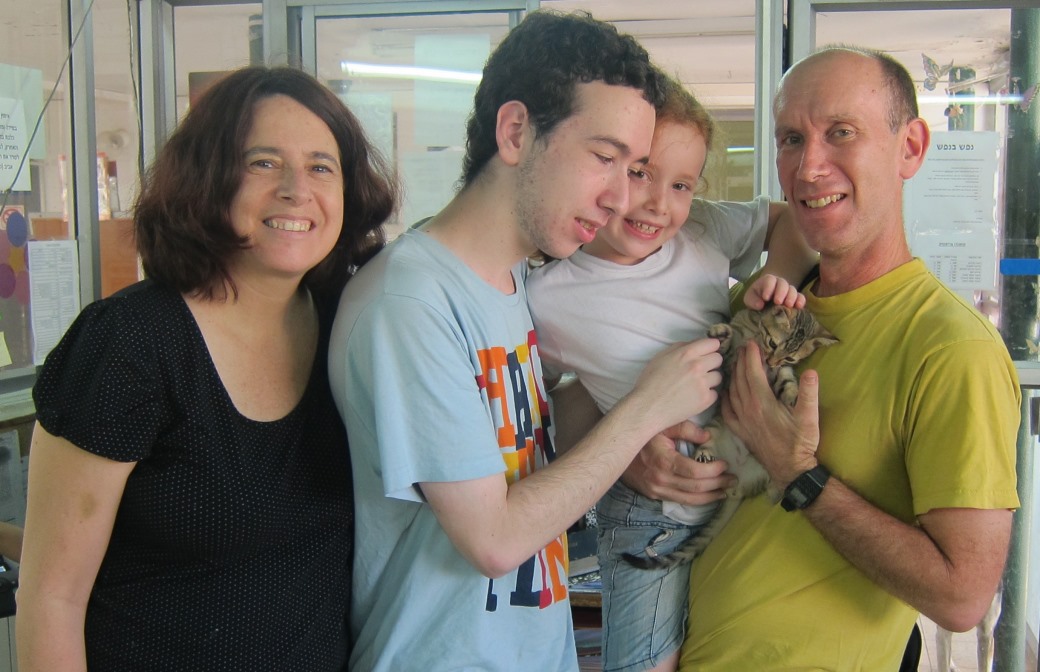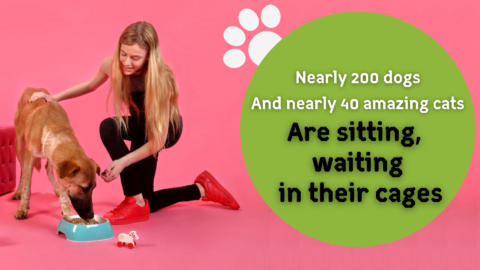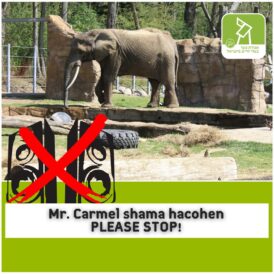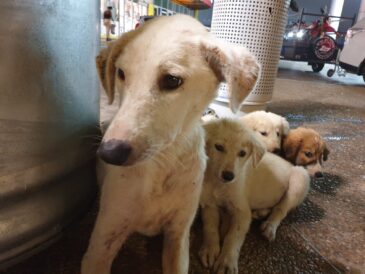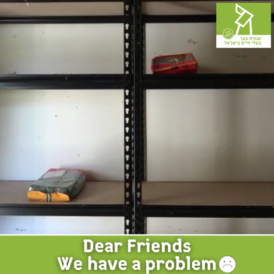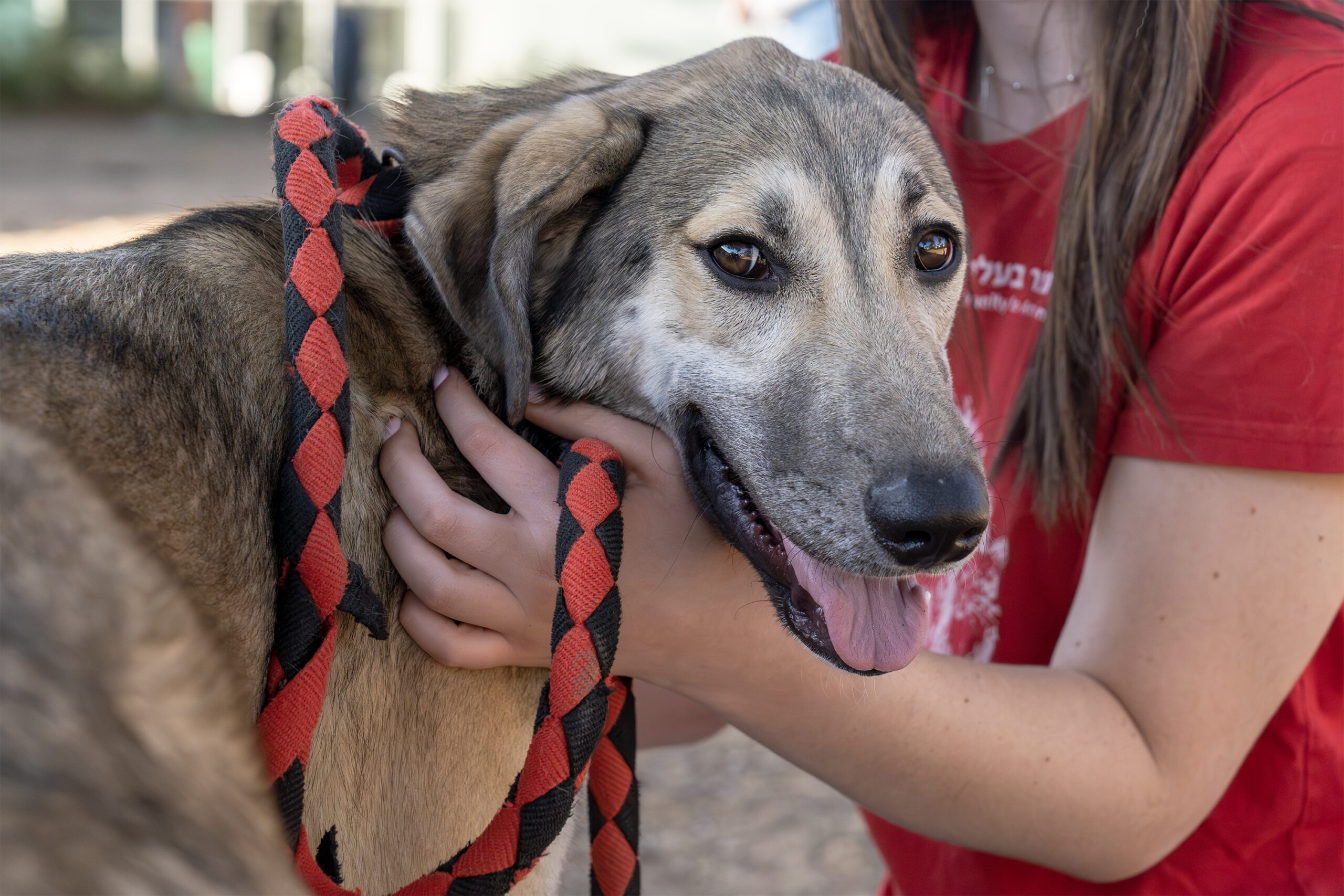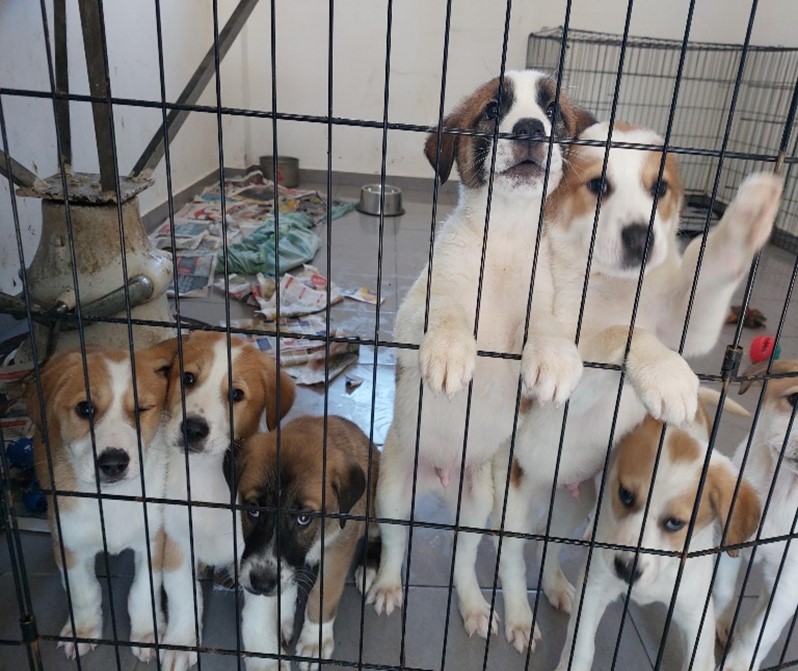Na’ama Rolnik, SPCA Adoption Counselor and dog trainer
Adopting a dog or cat brings, without doubt, a significant change in the family dynamics, affecting everyone. Even if one member of the family takes on the responsibility of being the main caretaker, the choice still has to suit all the others.
As a result of our wide experience in giving pets up for adoption, for many years now we, at the Society for Prevention of Cruelty to Animals in Israel, have been operating proceedings titled “Responsible Adoption”. The goal of this process is to reach maximum compatibility between the dog or cat and the adopters so that the animal will be able to live in its new home for the rest of its life and will not be abandoned again for reasons of incompatibility. During the process, the adopters read and sign a special form and have a meeting with one of the Society’s adoption counselors, during which we check if the adopters are able to provide the animal with all its needs and if they understand the obligation and responsibility involved in adoption.
As a result of cases when dogs or cats were returned from adoption because one of those involved decided that the choice was not suitable, we decided that, in the case of animal adoption by a family or other persons, the whole family or all those involved should come to the Society to be an inseparable part of the selection process. Everyone has to meet the new animal, to see how they get on with it. In the case of dogs, they should ascertain that the size of the dog suits and that the children are able to take it out for walks, that no member of the family has any hesitation or fear, if the energies suit the style of the family, and so on.
Following are some points for consideration:
The responsibility lies with the parents’: Very often adopters come to us claiming that it really doesn’t make any difference to their partners which animal they choose. Following our insistence upon everyone joining the process, sometimes, when the partners do come to the Society, they end up choosing a different animal. Sometimes, fathers come along with their children and say that the mother agrees to adopt a pet. On many occasions, when the mother actually comes or talks to us by phone, we discover that she does not agree to raise a dog in the house at all. In other cases, following a routine conversation with an adoption counselor, the parents realize that it is not realistic to expect a small child to take care of all the pet’s needs by itself and that they, the parents are the ones who have to take responsibility. Then we ask them to take time to reconsider and decide if they really are ready to start the process.
Animals do not make good gifts: A dog is a pack animal and will try to find its place also within the family unit. There are dogs that get along very well with adults but would have difficulty accepting the authority of a six-year-old child. Imagine, for instance, a situation where parents surprise their child with a dog that he has wanted so much but, when they bring the dog home, it bares its teeth when the child wants to take away its ball. Involving the child in the adoption process will prevent such situations that are detrimental both to the child and the dog, that will probably be returned to the dog pound. On occasion people come to us with the intention of adopting an animal for a friend or relative as a birthday gift. Also in such cases, we insist that the recipient of the gift should come to the Society to choose the animal. This is not a case of a new shirt or pair of shoes that can be exchanged or put aside when the owner gets tired of it, but a pet that will accompany its owner for many years. The new owners are the ones who will have to take care of their pet’s specific requirements, will become attached to it, to its story and its personality, and will raise it for the rest of its life.
Animals and the elderly: A pet is a loyal lifelong friend who can contribute wonderfully to older people who spend much of their days alone. A pet will give them a reason to go out of the house to walk, it loves to be caressed and snuggle and provides an interesting topic of conversation. Sometimes people come to us wishing to adopt an animal for their grandmother or grandfather, but pick out a dog or cat to which they themselves are attracted and then, at home, they discover that the dog is too energetic or that the cat’s litter box is not welcome in the house.
We know that the adopters have only good intentions and we want to find warm homes for all the cats and dogs in the SPCA, but first and foremost, we take into consideration the welfare of the animal itself and assess if the new house is going to be suitable in the long run. As far as we are concerned, there is nothing more disappointing than an animal that is returned to the Society because the wrong choice was made and did not suit the adopters. So, if you are considering adopting a pet, please devote some time to the process, as it is one that will greatly affect your life. Consider the advantages and the disadvantages, check how much free time you have at your disposal, remember that the children will grow up and leave the house while the animal will still be there. Think about the possible destruction of household items and all the other consequences. Once you have made your decision, come to us as a full family delegation, take the dog for a walk or spend some time with the cat in the cats’ home, and until you all reach a consensus, don’t hurry to adopt your new pet.
Main photo: The complete Gal family (the parents Na’ama and Dani, and the children Dana and Itai) when adopting three-month-old Max, about one year ago.

